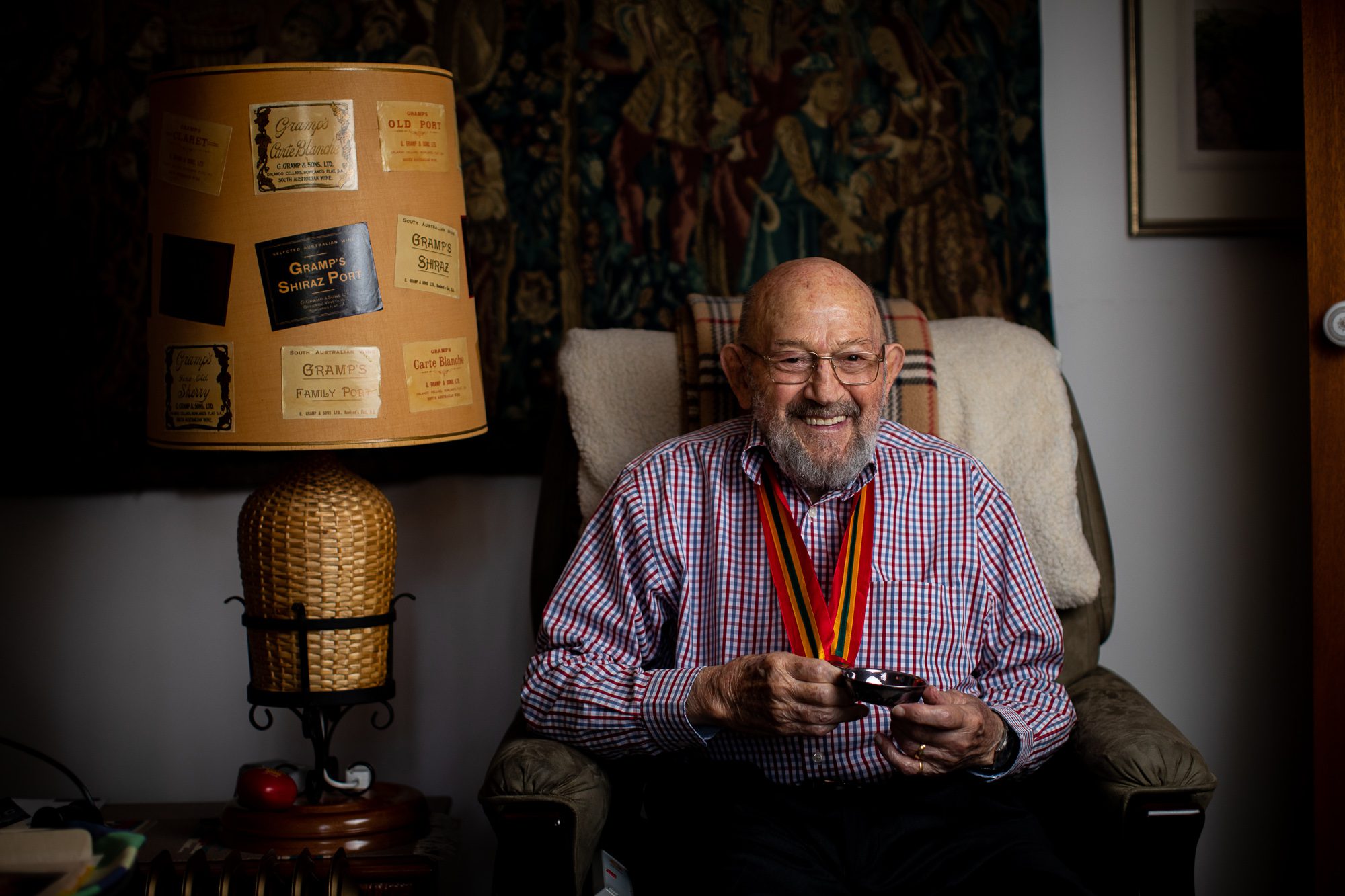
Australian wine industry icon Colin Gramp AM passed away at the Tanunda Lutheran Home in the Barossa Valley on 7 August at the age of 98.
Colin was a wine industry leader for decades and played a pivotal role in the glory days of Orlando Wines.
His father was Hugo Gramp, who was killed in the Kyeema air disaster in 1938 along with Tom Hardy and Sidney Hill Smith.
Colin was the great grandson of Johann Gramp, who migrated from Kulmback, Bavaria, to South Australia in 1837 and planted vines at Jacob’s Creek in 1847.
After completing his schooling at St Peter’s College, Colin joined Gramps Orlando in 1940 as an apprentice winemaker.
He joined the RAAF in July 1942 at the age of 20 and became an air gunner and was involved in 49 operational sorties.
In 1947 Colin became technical director of Gramps Orlando at a time when 80 percent of winegrapes were made into fortified wine.
“It is generally understood that the first ‘modern’ Barossa table wine was made by Colin Gramp at Orlando in 1947,” the Barossa Grape & Wine Association says on its website.
“Colin had visited wineries in France, Germany and California where he learnt about classic table winemaking techniques such as cool fermentation and oak maturation.
“His first wine was a 1947 Orlando Special Reserve Claret, predominantly made of Shiraz grapes with some Cabernet Sauvignon. This was the trigger for Barossa Vintage Reports to be published on an annual basis.”
In 1953 the winery bought two cold and pressure fermentation tanks that prevent oxidation. These enabled Orlando to make and market Barossa Pearl, a light sparkling wine. The recruitment of Guenter Prass from Germany was considered a masterstroke.
“After various samples had been tested, Barossa Pearl was released on 5 November 1956,” Tony Baker writes in the book The Orlando Way.
“Orlando could not have chosen better than Guy Fawkes’ Day because Barossa Pearl went off like a rocket.
“This was a wine which made social history.
“It sold first in the millions and then in the tens of millions until finally being superseded by changes in public tastes which the product itself generated.”
Colin served on various boards and committees over the years including chairman of the Adelaide Wine Show Committee and foundation member of the Barossa Valley Vintage Festival Association.
When Colin won the Wolf Blass Award from the Wolf Blass Foundation in 2014 he said, “I was privileged to be around at a time when we produced 80 percent fortified wine and 20 percent table wine, and we were not making as many delicate wines but in the 1950s we came up with cold and pressure fermented Riesling – it was a new technique.
“Back then we revolutionised white table wine made in the Barossa Valley and produced young wines of delicacy and freshness on the palate and marketed to be consumed in six months.”
The Barons’ website lists Colin’s interests as boating, fishing, water skiing, photography and wildlife preservation.
Colin was an original Baron of Barossa. This year he cut the ribbon to open The Barossa Cellar.
He told Katie Spain in an interview in the March-April 2020 issue of WBM – Australia’s Wine Business Magazine: “I donated some wine [Tokay] that I made when I was still running the Weinkeller Restaurant which is now St Hugo.
“It’ll be interesting to see what people say about the wine.”
WBM invites you to leave a tribute to Colin in the Comments section.
You can read more about Colin’s life here.
Photo: Colin Gramp AM.
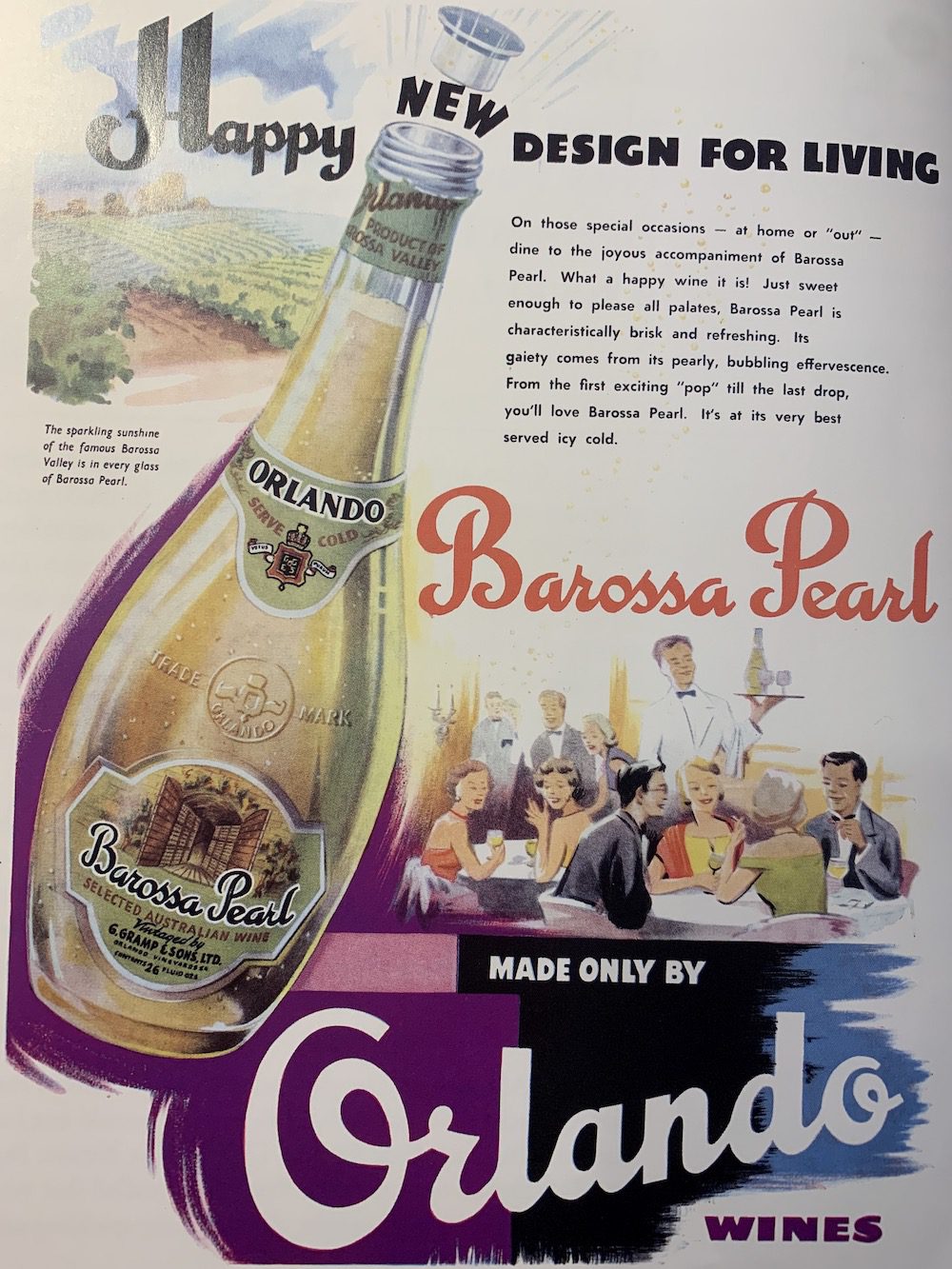










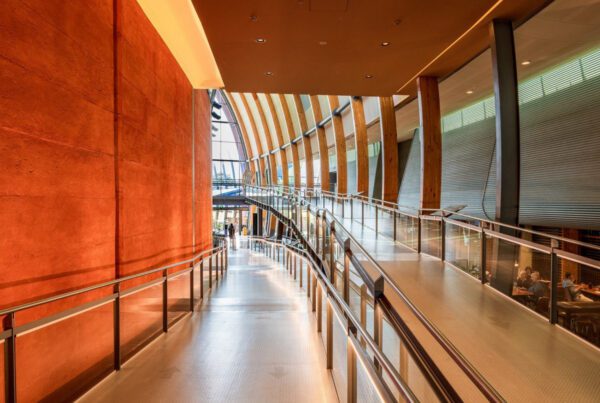
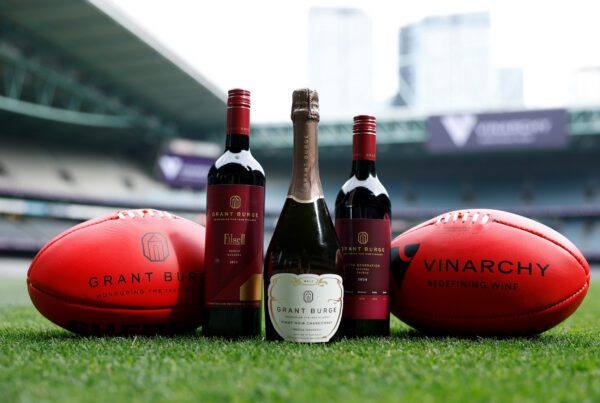
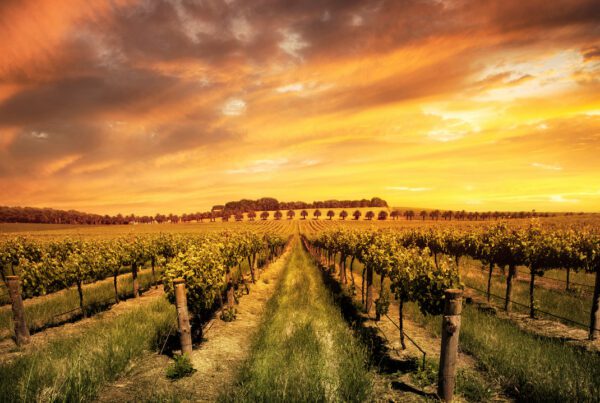
What a sad loss. I met Colin Gramp in 2001, shortly after moving to Australia from Germany. My grandmother had told me that a Johann Grampp from Kulmbach had emigrated in the 19th century to the Barossa Valley and planted German Riesling there. Being from Kulmbach myself, I decided to find out, if anybody of the Grampp family still lived in the Barossa and was amazed of what vine empire Johann and his descendants had formed. I found Colin, got in contact, visited him and we immediately became friends. We stayed in touch by writing old-fashioned long letters and sending each other little gifts, even after I returned back to Germany. Colin was such a warmhearted, intelligent and humorous man, a real gentleman and just wonderful person. He will be sadly missed by everyone who knew him.